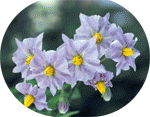| Abstract Detail
Coffee Genomics - Morning Andrade, A.C. [1], Vieira, L.G.E. [2], Colombo, C.A. [3], Pereira, G.A.G. [4]. The Brazilian Coffee Genomics Program. COFFEE is one of the most valuable agricultural commodities and ranks second on international trade exchanges. Coffea arabica and Coffea canephora represent about 65% and 35% of the total coffee market, respectively. The Brazilian Coffee Genome Program was designed with the objective of making available modern genomic resources to the coffee scientific community. The initial phase funded by the CBP&D-Café (Brazilian Consortium of Coffee Research and Development), Embrapa and FAPESP, consisted on single-pass sequencing of 214,964 randomly picked clones from 37 cDNA libraries. The libraries were constructed with plant material of C. arabica, C. canephora and C. racemosa, submitted to abiotic and biotic stresses and/or from specific stages of cells and plant development that after trimming resulted in 130.792, 12,381 and 10,566 sequences for each species, respectively. The ESTs clustered into 19,031 clusters and 13,928 singletons resulting in a Unigene close to 33,000 different sequences. Blast analysis of these sequences revealed that about one third had no significant matches to sequences in the NCBI database. Annotated sequencing results have been stored in two online databases at http://www.lge.ibi.unicamp.br and http://www.cenargen.embrapa.br. Current research on functional genomics is being carried out by several groups aiming at identifying genes involved in tolerance to biotic (leaf rust, nematods, leaf miner, etc) and abiotic (drought and salinity) stresses, and genes involved in flowering, fruit development and quality. Transcriptional profiling using cDNA arrays associated with protein profiling by mass spectrometry analysis of tryptic peptides are tools currently being developed for use in these functional studies. In addition, several groups are concentrated on identifying SNPs and other molecular markers, aiming at establishing a breeding program based on marker-assisted selection. Resources developed in this research program will provide genetic and genomic tools that may hold the key to the sustainability, competitiveness and future viability of the Brazilian coffee industry.
Log in to add this item to your schedule
Related Links:
Coffee Genomics Project
Coffee Genomics Project
1 - Embrapa Recursos Genéticos e Biotecnologia, NTBio - Biotecnologia, W/5 Norte Final, s/n, Parque Estação Biológica, Brasília, DF, 70770900, Brazil
2 - Instituto Agronômico do Paraná - IAPAR, Lab. de Biotecnologia Vegetal, Cx.P: 4981, Londrina, PR, 86001970, Brazil
3 - Instituto Agronômico de Campinas - IAC, Cx.P: 28, Campinas, SP, 13001970, Brazil
4 - Instituto de Biologia - UNICAMP, Lab. de Genômica e Expressão, Cidade Universitária Zeferino Vaz, Campinas, SP, 13083970, Brazil
Keywords:
coffee genomics
transcriptional profiling
Mass spectrometry.
Session: SAT01-4
Location: Hall of Ideas Room G/Monona Terrace
Date: Wednesday, July 26th, 2006
Time: 8:00 AM
Abstract ID:357 |
